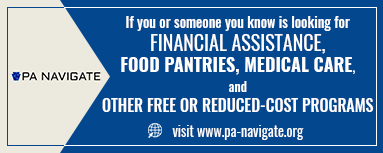Healthcare is one of the most rewarding professions. As a healthcare worker, you help people in their time of greatest need, providing them with the medical care and often the emotional support that they require on their journey toward health and wholeness. However, because patients are in a vulnerable position, emotions can run high, and sometimes physical or verbal attacks can occur. Government data shows healthcare workers are five times more likely to experience workplace violence than other workers.
Millions of people are helped every day in hospitals, therapy centers, doctors’ offices, home health agencies, and other medical facilities across the country. Amid that great volume of need, it is not surprising that some people act badly. Many non-fatal injuries occur from healthcare workplace violence, most of which is perpetrated by the patients themselves. Distraught family or friends can cause a small percentage of those incidents. Common abuses may include pushing, kicking, biting, spitting, or verbal abuse. More serious attacks are very rare, but the risks should be taken very seriously, and any abuse can cause physical and emotional harm to the victim.
BCHIP is partnering with NOVA and the DA’s office to address these issues. A task force is in place in coordination with our partner institutions to study the problem, determine root causes, and implement policies, procedures, and consequences for violence in the workplace.
Some causes or risk factors of workplace violence seem to include:
- The emotional state of the patient, family, and/or friends
- Shortage of staff, causing long waits at healthcare facilities such as emergency rooms
- Overworked inpatient staff, with too many patients per nurse
- Healthcare staff who are not trained in conflict resolution to de-escalate volatile situations
- Environmental factors that cause patient or family frustration: inflexible visiting hours, overcrowding, lack of information, language or cultural barriers
- No clear consequences for patients or family members who engage in physical or verbal abuse
While most patients greatly appreciate the help of healthcare workers, a few unpleasant experiences can cause nurses and other staff to feel vulnerable, demoralized, and overly cautious with other patients, which can have an adverse effect on the quality of care a nurse or healthcare provider offers. It is critically important for nurses and all staff working in medical settings to feel safe and to know that, if violence does occur, those who commit the assault will experience consequences for their behavior.
Possible solutions could include:
- Clearly established policies regarding violence against healthcare workers, including serious consequences that can include pressing charges
- Training in de-escalation and conflict resolution
- A reporting system that documents all incidents of abuse
- A culture of support for victims of abuse and encouragement of thorough reporting
- Sufficient security systems, security personnel, alarms, and emergency response teams
Certainly, one can have compassion for the patient who, in an unhealthy state, reacts with anger or aggression, but compassion cannot justify overlooking the behavior and the harm done to the victim. Even unwell people should be held accountable for their behavior. The goal is to find a balance that ensures that our Bucks County healthcare workers are at all times respected and protected, while they continue to provide the care that patients need.
Data shows that when a measurable, enforceable workplace violence prevention program is in place, the quality of care increases, incidents of violence decrease, and staff is more comfortable and confident. At BCHIP, we are working with our partners, healthcare workers, and other stakeholders to make Bucks County one of the safest counties in the country for healthcare workers and their patients.






